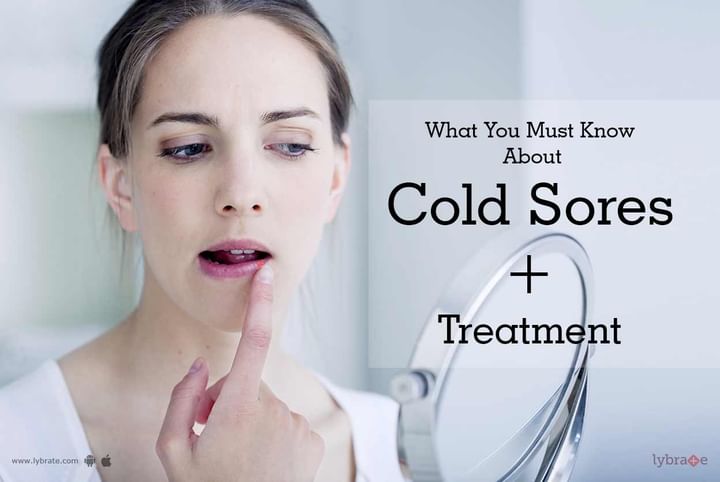What You Must Know About Cold Sores + Treatment
Cold sores are typically caused by the herpes simplex virus and are characterized by small blisters that develop around the lips and mouth. However, some people do not showcase any symptoms at all. The mouth is the most affected area as the skin in this area is not as resistant to the virus as skin on other parts of the body. It can also occur on the chin, nose or cheeks. Cold sores are communicable through skin contact. This condition can also be triggered by stress.
The first time this virus affects is a person is known as the primary infection. Some of the symptoms of cold sores are
- Blisters on the mouth, lips, tongue, throat or gums. These blisters may be dry or oozing.
- Pain while swallowing or eating due to ulcers and blisters.
- Swollen neck glands.
- High fever accompanied by body ache.
An outbreak of cold sores usually lasts about a week. Once the primary infection is over the virus is not eliminated from the body, but remains dormant in a nerve sheath. Recurrent cold sores may not cause severe mouth infections as with primary infections, but can be quite unpleasant. In most cases, recurrent cold sores erupt in the same area as the primary infection.
Some of the ways to treat primary infections are:
- Painkillers: Over the counter painkillers such as ibuprofen or paracetamol can help ease the pain.
- Chlorhexidine mouthwash: This can be used in place or brushing in case of painful sores inside the mouth. It can also prevent plaque buildup and secondary gum infection.
- Antiviral medication: If taken at the onset of a cold sore infection, this can reduce the pain associated with it and shorten the duration of the infection. This also prevents the virus from multiplying.
As cold sores are communicable, it is important to prevent it from spreading. Some ways of containing this infection are:
- Wash your hands with soap and water after touching your mouth or the sores.
- Avoid touching the cold sores
- Abstain from oral sex
- Do not share items that come in contact with the infected area like lip balms, towels, cutlery etc.
If the symptoms do not subside within 5 days, visit a doctor immediately. Consult a doctor if you have frequent bouts of cold sores or suffer from a severe case of the disease. Pregnant women and mothers with young babies who suffer from the disease should also seek prompt medical attention.
Related Tip: "All About Cold Sores"



+1.svg)
